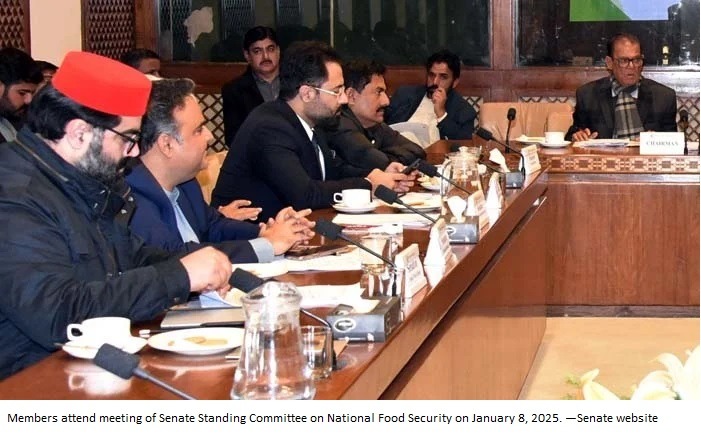Senate Committee Stunned by Allegations of Plastic Rice, Dog, Frog Meat in Pakistan
BUSINESSNEWS


ISLAMABAD: During a critical meeting on food security, Senator Aimal Wali Khan made alarming allegations that left committee members horrified, sparking calls for immediate action to address food safety concerns in the country.
The disturbing claims were made during a session of the Senate Standing Committee on National Food Security, chaired by Senator Syed Masroor Hassan. The committee convened to discuss issues surrounding Pakistan's basmati rice exports to the European Union (EU), but the conversation soon turned to more shocking revelations about food quality in Pakistan.
Senator Khan accused local markets of selling plastic rice, as well as meat from donkeys, dogs, and frogs, highlighting the lack of effective regulation and food safety measures. He also cited a report that revealed that only 22% of milk sold in the country was authentic, with the remaining 78% being chemically altered or counterfeit. In light of these concerns, the Senate body formed a sub-committee tasked with drafting a comprehensive food safety policy.
Further discussions revealed that Pakistan's rice exports to the EU have faced considerable setbacks. According to officials from the Ministry of National Food Security & Research (MNFS&R), 107 rice consignments sent to the EU have been rejected due to quality issues. Since 2024, a total of 10,300 rice shipments have been exported, with 17 FIRs filed by the Federal Investigation Agency (FIA) against employees involved in the alleged mismanagement of rice exports. Currently, 11 individuals are in custody, two are on the run, and four are out on bail.
Senator Khan expressed frustration at the lack of accountability, questioning why shipments that were cleared for export were still developing fungus. His criticism of the food security officials underscored a failure in preventing consignment rejections.
Meanwhile, Senator Dinesh Kumar raised concerns about the absence of a solid food safety policy, a sentiment that was echoed by the Secretary of National Food Security during the meeting.
The committee also discussed the issue of cotton cess recovery, with Federal Minister Rana Tanveer Hussain reporting that Rs3.2 billion in unpaid cess has been outstanding since 2016. He noted that the All Pakistan Textile Mills Association (APTMA) claimed they lacked the funds to pay the cess. A policy for recovering the funds will be proposed after consultations with the prime minister.
Despite these challenges, officials highlighted that the committee's efforts have led to Rs30 million in monthly cess collections. However, there is a growing call for classifying non-payment of cotton cess as a non-bailable offence. The next committee meeting will include APTMA representatives to resolve the issue.
